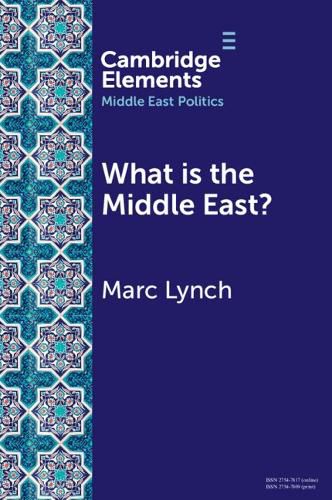Readings Newsletter
Become a Readings Member to make your shopping experience even easier.
Sign in or sign up for free!
You’re not far away from qualifying for FREE standard shipping within Australia
You’ve qualified for FREE standard shipping within Australia
The cart is loading…






The Middle East has traditionally been understood as a world region by policy, political science, and the public. Its borders are highly ambiguous, however, and rarely explicitly justified or theorized. This Element examines how the current conception of the Middle East emerged from colonialism and the Cold War, placing it within both global politics and trends within American higher education. It demonstrates the strategic stakes of different possible definitions of the Middle East, as well as the internal political struggles to define and shape the identity of the region. It shows how unexamined assumptions about the region as a coherent and unified entity have distorted political science research by arbitrarily limiting the comparative universe of cases and foreclosing underlying politics. It argues for expanding our concept of the Middle East to better incorporate transregional connections within a broader appeal for comparative area studies.
$9.00 standard shipping within Australia
FREE standard shipping within Australia for orders over $100.00
Express & International shipping calculated at checkout
The Middle East has traditionally been understood as a world region by policy, political science, and the public. Its borders are highly ambiguous, however, and rarely explicitly justified or theorized. This Element examines how the current conception of the Middle East emerged from colonialism and the Cold War, placing it within both global politics and trends within American higher education. It demonstrates the strategic stakes of different possible definitions of the Middle East, as well as the internal political struggles to define and shape the identity of the region. It shows how unexamined assumptions about the region as a coherent and unified entity have distorted political science research by arbitrarily limiting the comparative universe of cases and foreclosing underlying politics. It argues for expanding our concept of the Middle East to better incorporate transregional connections within a broader appeal for comparative area studies.